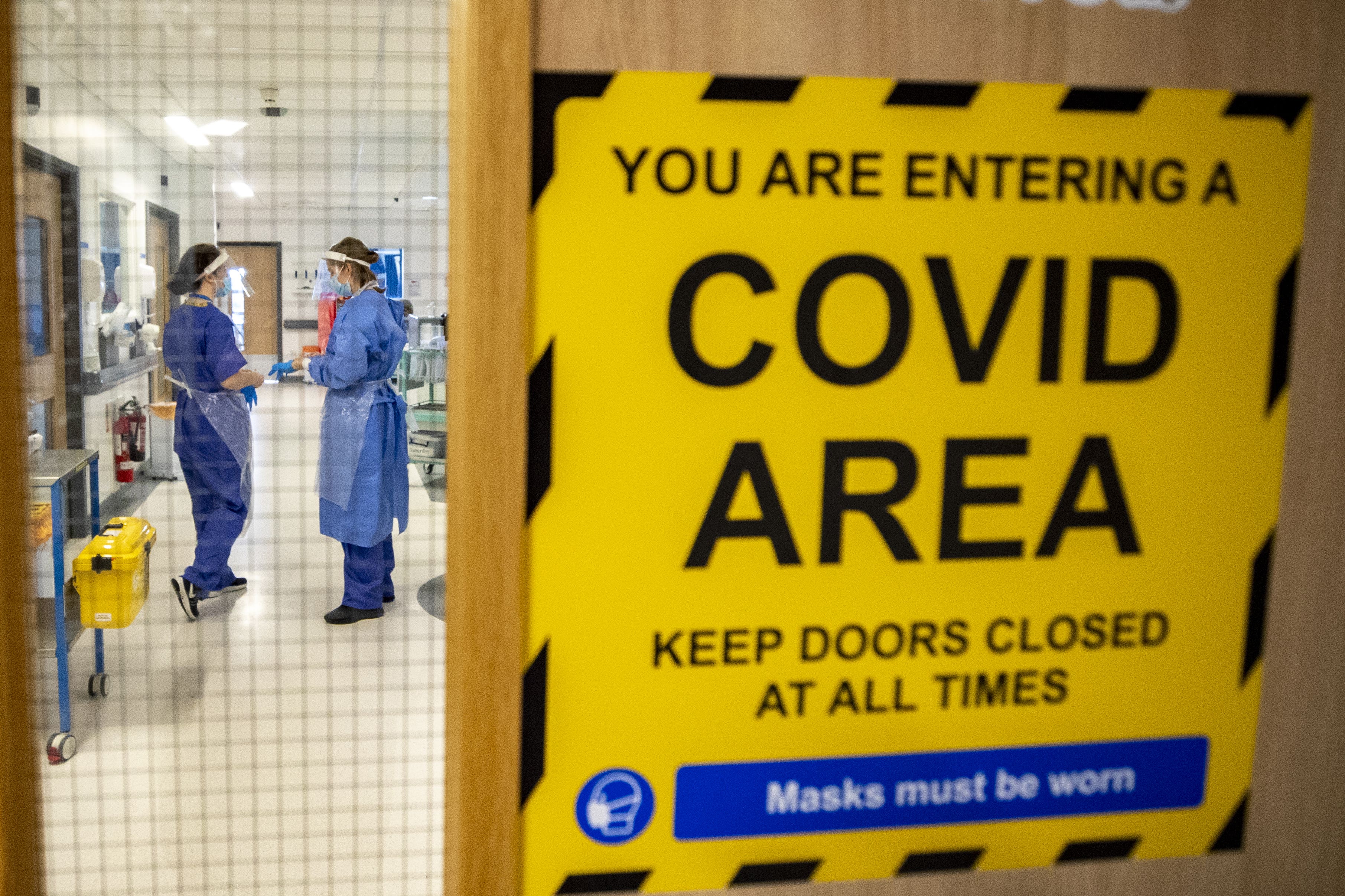Covid triaging ‘abysmal’ as some denied treatment while ill, inquiry told
Alan Wightman said young people, disabled people and the elderly deserved better treatment during the pandemic.

Your support helps us to tell the story
From reproductive rights to climate change to Big Tech, The Independent is on the ground when the story is developing. Whether it's investigating the financials of Elon Musk's pro-Trump PAC or producing our latest documentary, 'The A Word', which shines a light on the American women fighting for reproductive rights, we know how important it is to parse out the facts from the messaging.
At such a critical moment in US history, we need reporters on the ground. Your donation allows us to keep sending journalists to speak to both sides of the story.
The Independent is trusted by Americans across the entire political spectrum. And unlike many other quality news outlets, we choose not to lock Americans out of our reporting and analysis with paywalls. We believe quality journalism should be available to everyone, paid for by those who can afford it.
Your support makes all the difference.Covid triaging was “abysmal” as some people were refused medical care while battling the virus, the UK Covid-19 inquiry has heard.
Alan Wightman, representing the Scottish Covid Bereaved group, told the inquiry of two young men, aged 28 and 31, who died after being refused medical attention while ill with Covid.
Mr Wightman, who lost his mother Helen to Covid at a care home in May 2020, spoke largely about the treatment of elderly people living in Scottish care homes during the pandemic, but said “it wasn’t just about old people being denied care”.
He said: “We had two young men who were lost, one aged 28 and one aged 31.
Stay at home, tough it out until you get to day 10. In both cases, they didn't make it as far as day 10, so the triaging was abysmal in those two instances
“Because when they phoned up for help, having isolated at home and suffering from Covid, they phoned up on day seven and I think day eight in one case, and were told they had to stay [at home] because of their age.
“Stay at home, tough it out until you get to day 10.
“In both cases, they didn’t make it as far as day 10, so the triaging was abysmal in those two instances.”
Mr Wightman, a polymer chemist, went on to tell the inquiry of instances where elderly people were discharged from hospital and sent home, despite having Covid.
He said: “We’ve got an example of a gentleman, 84, sent home to this 82-year-old wife, known to be infected with Covid, but there was nothing more the hospital felt they could do for him.
“They sent him home, she got Covid as well and they both died because of it.
“There are a couple of families where that same story applies. They lost both elderly parents because they didn’t get the treatment in hospital and they were sent home.”
Mr Wightman then gave evidence on the treatment of disabled people who were deemed high-risk during the pandemic.
He said disabled people should have “been given better care”, and he cited a stroke victim who was not given the vaccine as he was not yet aged 60.
Due to his stroke, the man also suffered from “locked-in syndrome” – a term given to those who have suffered almost complete loss of muscle use and cannot communicate verbally.
Mr Wightman argued he should have been vaccinated due to the severity of his condition.
He said: “This is a man who was totally dependent on others. He’d clearly survived the first year or so of the pandemic because the vaccine had arrived, but he was denied it because the guidance said you have to be 60 and over to get the vaccine and he wasn’t 60 yet.
“But he was completely dependent on others and, of course, he did catch Covid and he did not survive it.”
The inquiry continues.